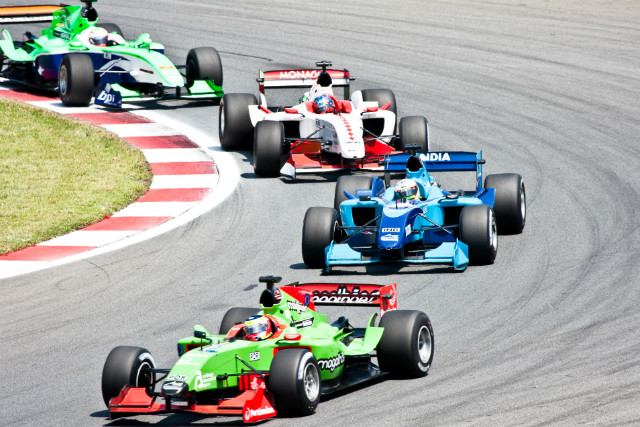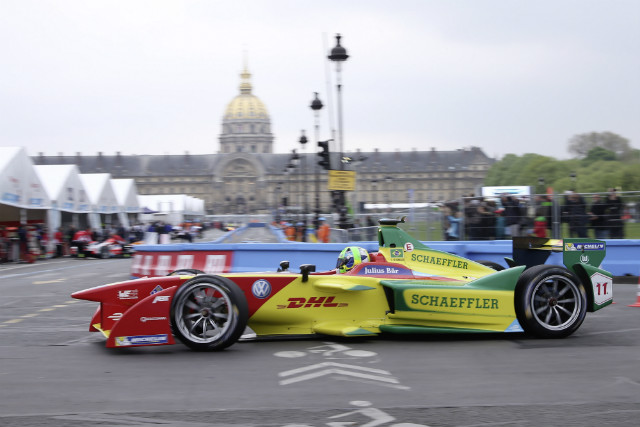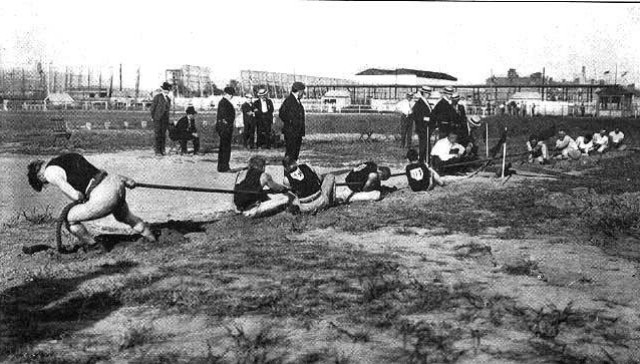Motorsport has a presence in almost every country in the world through various competitive events or, at the very least, television and online coverage.
Despite this, motorsport is something that has eluded the Olympic Games, which is widely considered the world's foremost sports competition. While many other sports are included in the Olympics – such as football, tennis, basketball and now golf - motorsport has always remained distant from it.
The closest motorsport has ever come to being part of the Olympics was way back during the 1900 Olympics in Paris. Even then, motorsport was merely a demonstration event.
While the Olympics would probably continue to thrive without motorsport, we say it can feasibly be part of the games and be very successful in the process. Here are our reasons why we believe motorsport can fit in with the Olympic games in the future.
You’d have to be physically and mentally strong to take part

Part of the whole appeal of the Olympics is seeing athletes show their physical and mental finesse.
While the extent of the physical demands varies from category to category, all categories of motorsport require you to be fit. This especially applies in high-speed events like Formula 1 and IndyCar, where the g-forces the drivers experience require them to have strong neck and arm muscles to take part.
Good stamina that’ll allow you to cope with hours of intense racing in a vehicle is a must too. A good mind is also vital if you want to succeed in motorsport, since competitors have to think about a whole lot besides just driving their car properly.
If an Olympic event is supposed to test the bodies and minds of its participants, then motorsport can certainly pass that requirement.
Nation-based racing has been done before

At the Olympics, virtually all competitors represent their country, whereas racing drivers tend to represent manufacturers or a sponsor-heavy privateer. But it hasn’t always been this way.
Hardcore motorsport fans will likely remember the A1 Grand Prix championship – an open wheel, single make series where all drivers competed in identical cars but each represented their home country. With one car per each competing nation, this championship was dubbed the ‘world cup of motorsport’ at one stage.
Sadly, the series ended up struggling financially and fell into liquidation a few years after it was founded, but it did show potential while it lasted.
A wide variety of categories can exist to attract plenty of competitors
Formula 1 is well known, even to people who have no interest in racing cars, but you wouldn’t necessarily have to stick to Formula 1 for the Olympics. There are all kinds of categories for athletics and swimming for instance.
As well as open-wheel track racing, you could have touring cars, rallying, stock cars, Le Mans Prototypes, go-karts, motorcycle racing.
You could even consider more niche categories for the Olympics like dirtbike racing, truck racing or modified lawnmower racing (yes, that is actually a thing!)
The competitors should have a level playing field
An event like the Olympics would be a great opportunity to put drivers in equal machinery so that it’s more likely that only talent alone will separate them.
In categories like Formula 1, some drivers stand out more than others, but this can be largely down to the car they are using, not just their talent as a driver.
Imagining seeing the likes of Lewis Hamilton, Sebastian Vettel and Fernando Alonso all in the same car with the same engine and same aerodynamic parts fighting each other for gold on track. That’s the sort of scenario that would guarantee a large audience.
Every race could be short, but action-packed
In most motorsport categories, a single season will take up most of the year and consist of many races where points are awarded not just for winning but for finishing in the top six, eight, or ten etc.
Sometimes, a driver who’s not leading will opt not to take any risks to move up a position because their current position will guarantee a sizeable haul of points beneficial for the championship long-term.
Motorsport at the Olympics would need to be much briefer though, so you’d likely end up with a mini-championship or single decisive race where only the top three positions matter to get a medal.
Setting up such a high-stakes, winner-takes-all scenario could lead to dramatic races as drivers will be more likely to take risks to chase down and overtake their opponents, knowing that finishing outside the podium places means nothing.
Thanks to modern technology, the racing could be free of emissions

The one thing above everything else that may put people off the idea of having motorsport at the Olympics is its lack of green credentials. After all, no sport on the current Olympics roster requires you to burn fuel or put extra CO2 emissions in the sky (unless you count the support vehicles used for some cycling events).
However, the technology for powertrains used in motorsport has made tremendous progress in recent years. Both Formula 1 and the 24 Hours of Le Mans feature cars with hybrid engines that are far more fuel efficient than what was used in past decades.
As categories such as Formula E show, we can even feasibly have motorsport that’s fully-electric, emission-free and still entertaining. Opting for an electric car racing series could be particularly appealing to Olympic games organisers, since it’d be easy to host the races within the cities themselves without having to worry about potential emission laws or having to build race tracks.
Stranger things have been an Olympic sport

If you dig through the history books of the Olympics you’ll learn that some, erm, curious things have been part of the games in the past. As we mentioned earlier, the Olympic Games nowadays pushes athletes to their limits.
So you might be baffled to read that past Olympic ‘sports’ have included tug-of-war, painting, music playing and sculpturing. Bearing all that mind, surely motorsport in the Olympics can’t seem weird at all now, eh?
Find prices for new cars at carkeys.co.uk



